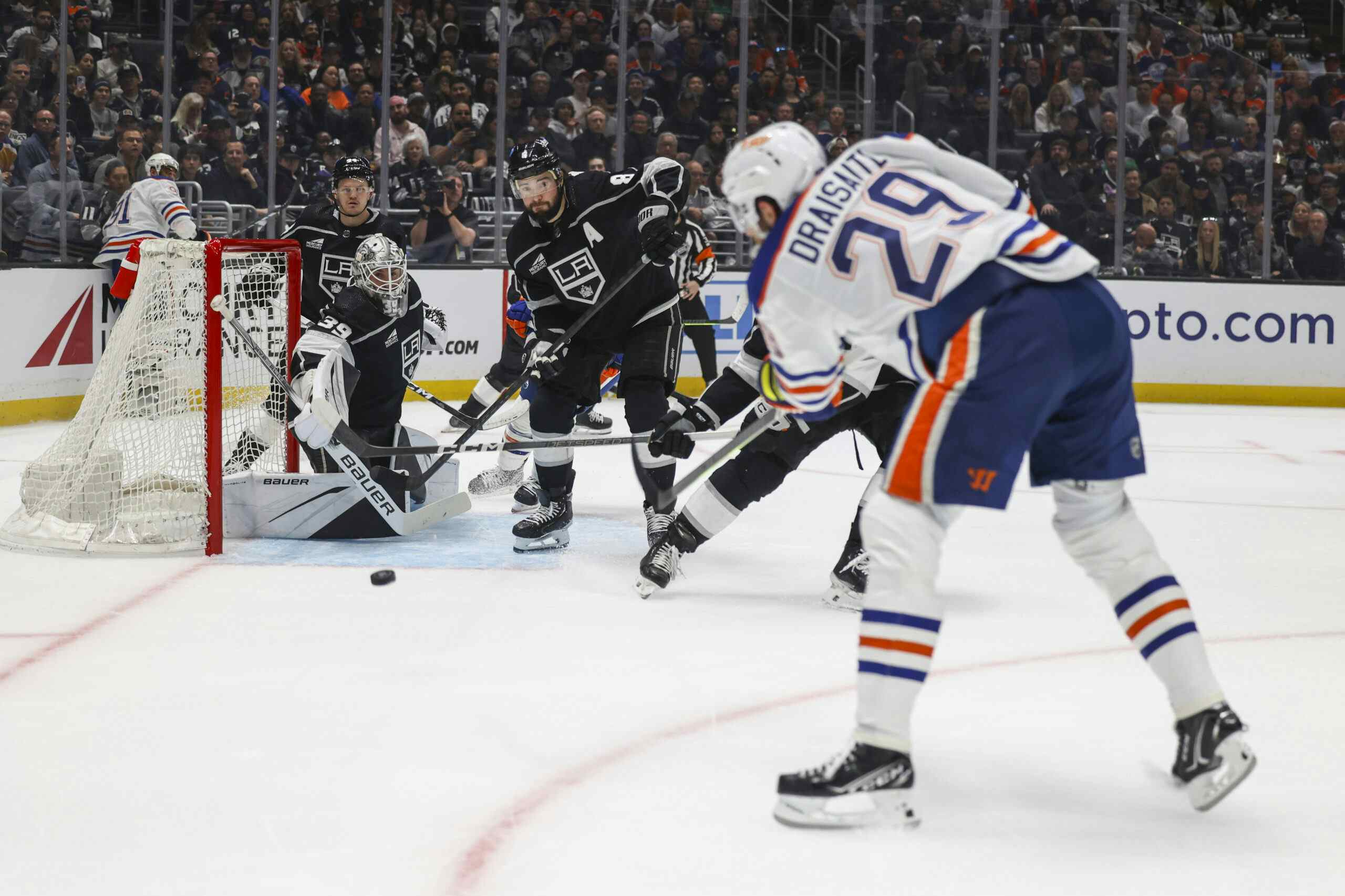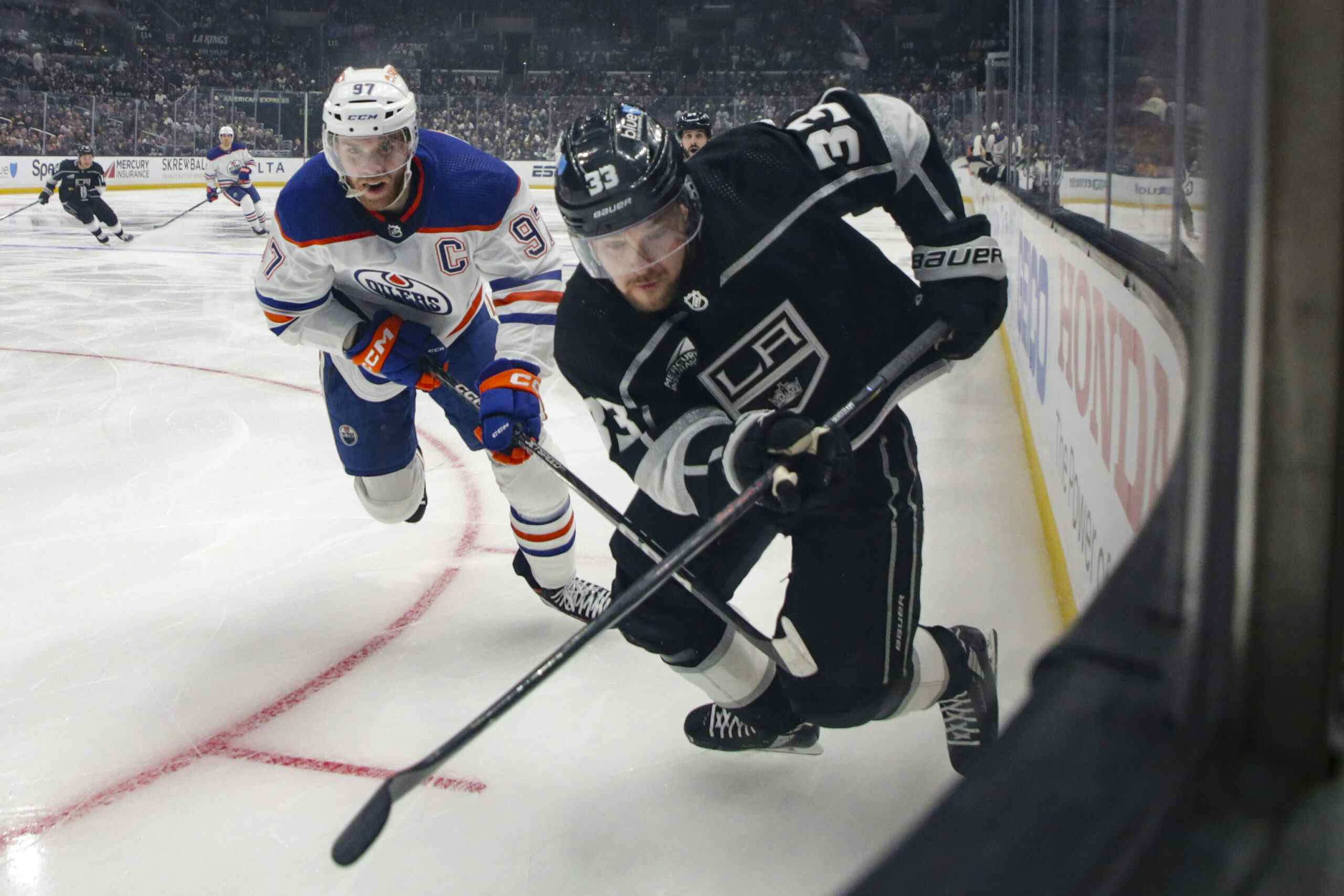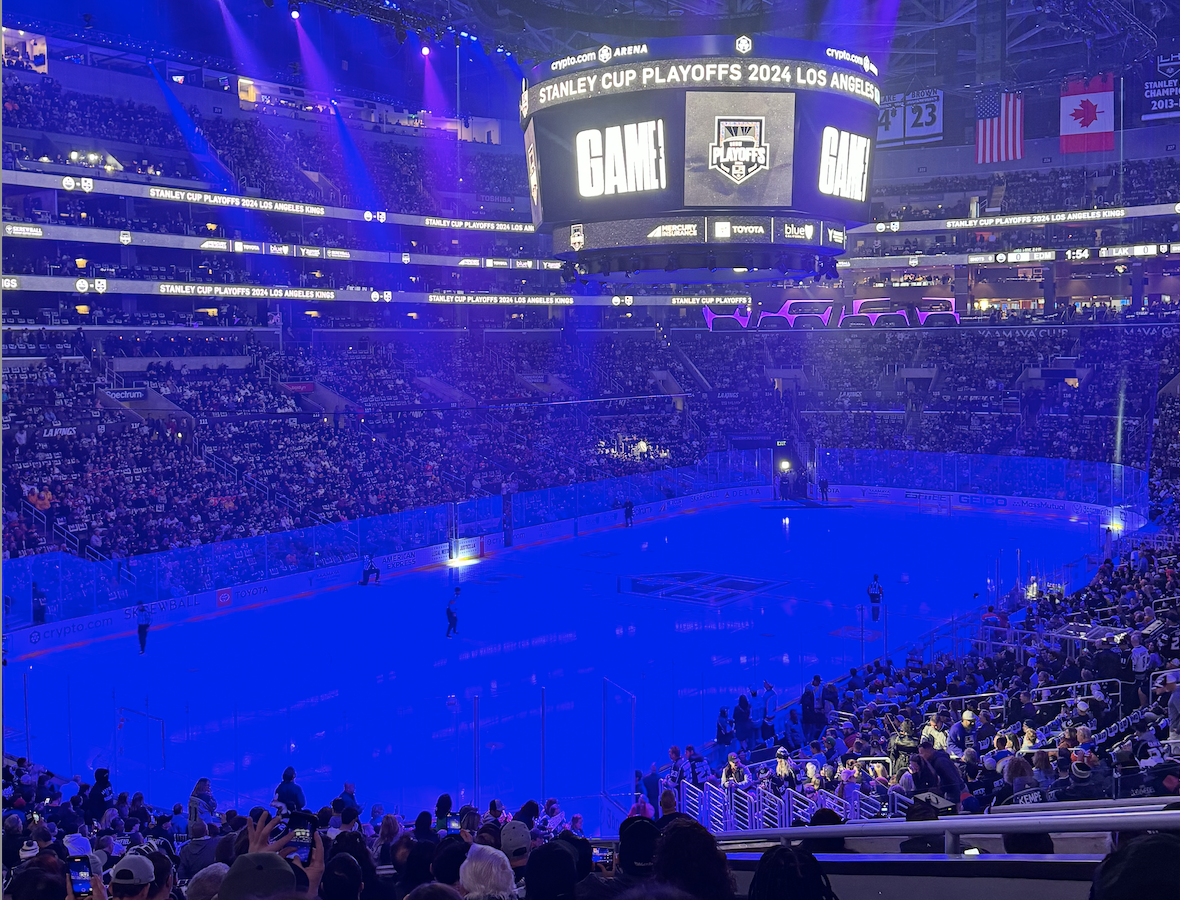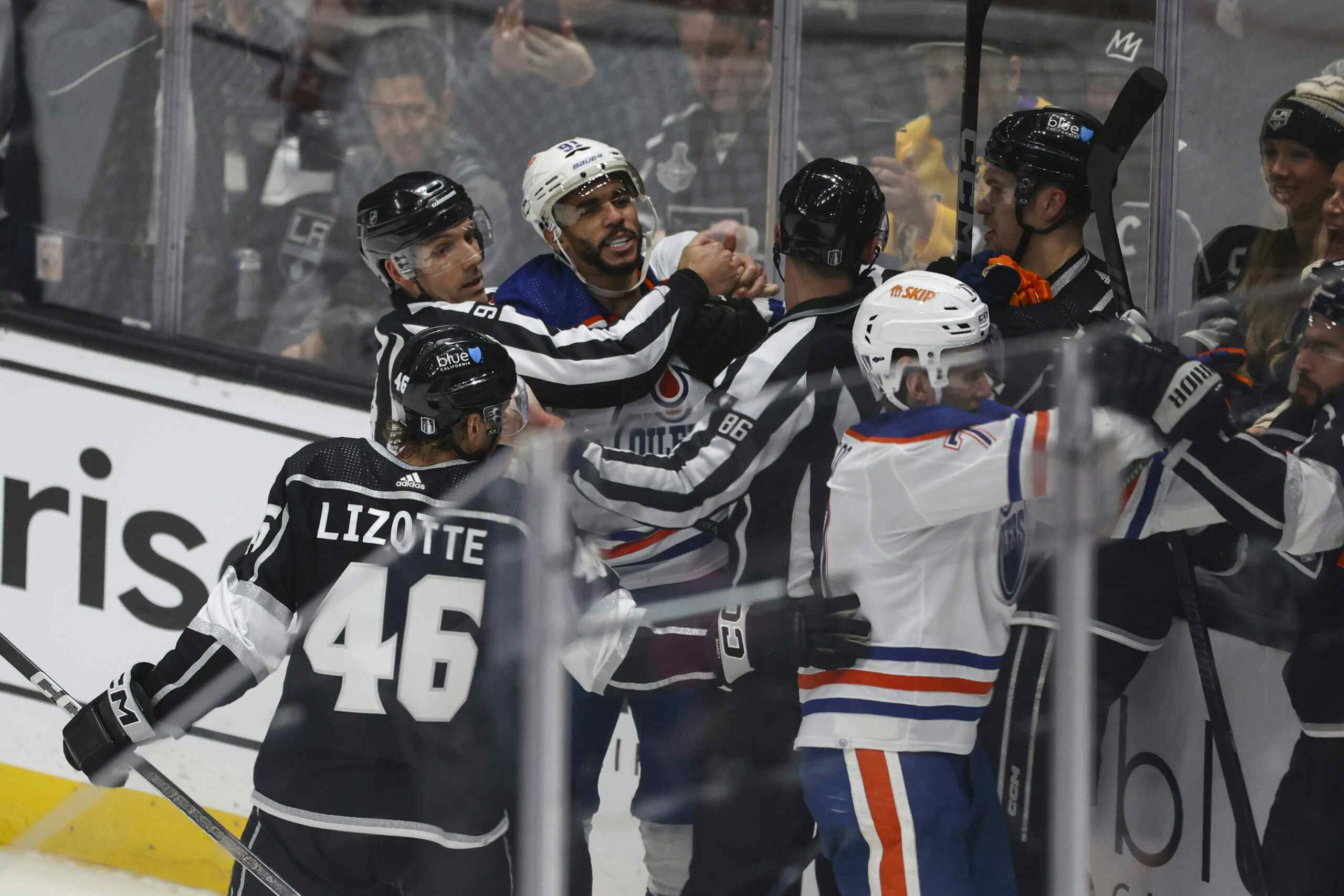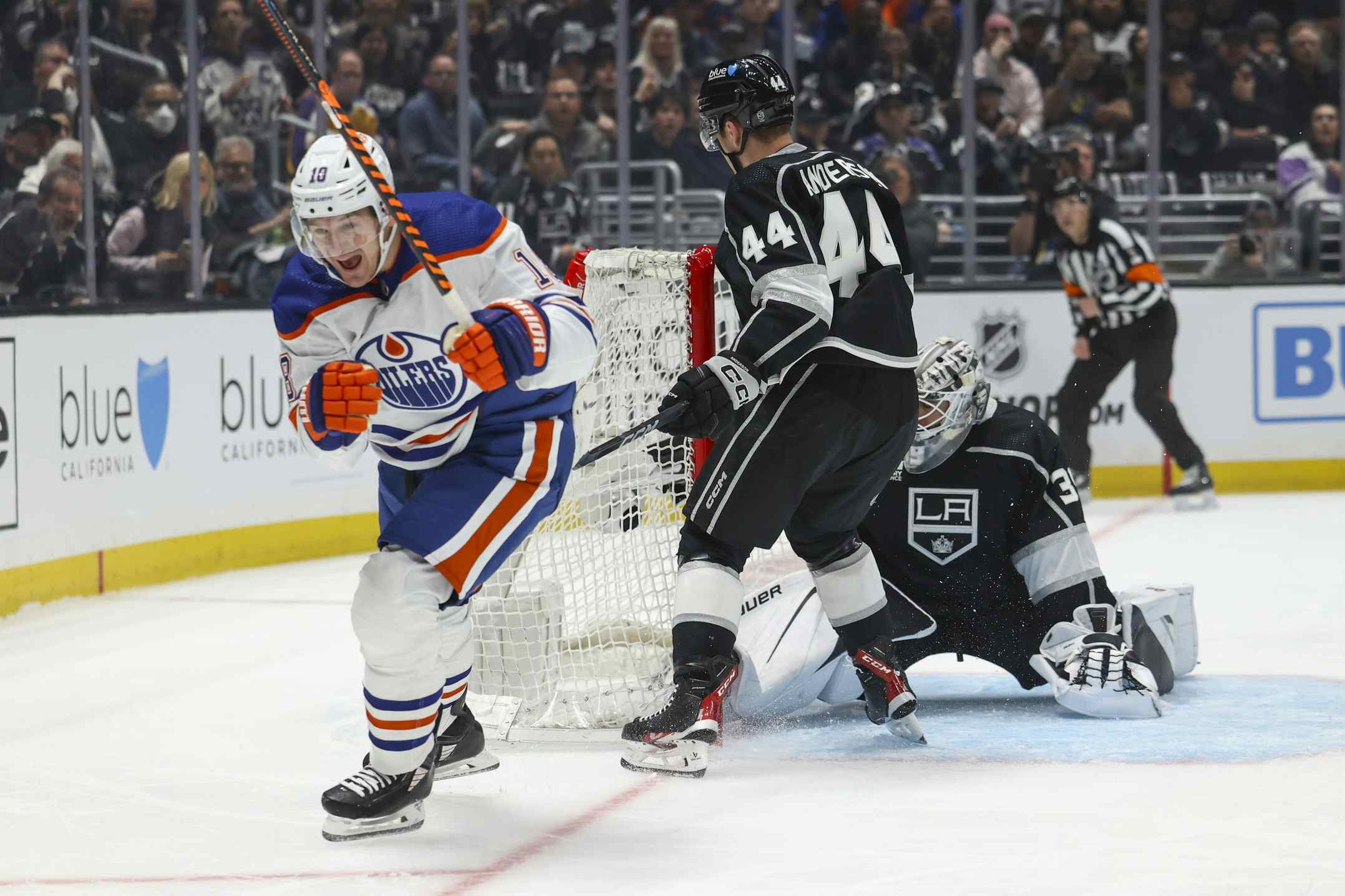PLAYER PROFILE: SEAN MONAHAN
By Jason Gregor
10 years ago
Whoever drafts Sean Monahan will be getting a very driven, mature and intelligent young man. I spoke with the projected top-ten pick and I came away very impressed.
The Flames draft 6th while the Oilers pick 7th and both teams need help down the middle. Monahan could be the perfect fit for either franchise, and I suspect if he isn’t taken in the top-five picks he won’t make it past both Alberta teams.
The Flames draft 6th while the Oilers pick 7th and both teams need help down the middle. Monahan could be the perfect fit for either franchise, and I suspect if he isn’t taken in the top-five picks he won’t make it past both Alberta teams.
Monahan and I talked about his drive to be a great two-way player, dominate on faceoffs and how being on a great Ottawa 67’s team in 2012, and a brutal one in 2013 has helped his development.
Jason Gregor: Your point totals the past two seasons didn’t vary despite playing on vastly different teams. You were on a first place team last year and tallied 78 points, while this year your team finished last yet you still managed 78 points. How were you able to remain consistent with your point totals despite your team success not being as good?
Sean Monahan: I think last year playing with Tyler Tofolli, Shane Prince and Dalton Smith, it was a good learning experience for me. I learned a lot especially on the offensive side from guys like Tofolli and Prince. This year was a little bit of a different season. I think I had to accept a different role, as a leader, so I tried to do that and being put in that role benefitted me and it allowed me to be the best that I could every game. It helped that the coach gave me a lot of opportunities. So that’s why I think that the numbers are similar. They could have been a little bit better, but I think that things happen for a reason.
JG: A lot of the scouts that I’ve talked to rave about your professionalism and being a mature young man. Listening to you speak, it sounds like you’re 25 but you’re only 18 years of age. Where does that maturity come from?
SM: I’m not sure. I think maybe just how I was raised; I always try to be the best person I can be. I like to learn and I think that I take things in a lot. I guess going through the learning experience I have through my sports careers, I think it’s kind of made me who I am today.
JG: You were named Captain in Ottawa this year. Talk about that experience and what you like most about being a captain?
SM: Being a leader, I think it’s a natural trait and it’s something that you have to take pride in. So I was very happy when I was named to share the duty with [Cody] Ceci before he was traded and then I took on the responsibility myself, but I think that it was good for me.
It was a challenging year for my team, and I was the guy in charge. I was there for two years before, so I knew what winning felt like. I obviously got to know what losing felt like this year, so I think that being a leader in that sort of situation it really helped my character and learned how to approach the team and how to approach games in different situations. I think that I tried to be the best leader that I could, both on and off of the ice.
JG: What did you learn about your personality playing on a losing team compared to being on a winning team?
SM: I just learned that even if you’re on a losing team, you can’t quit; there are always people watching you and you have to be the best player you can be all of the time. So if you’re losing by five goals in the third period you can’t call it quits, you’ve got to battle and I think that that’s when your character really comes out. You’ve got to push yourself. I think that that’s the biggest difference on a losing and on a winning team. You can’t toss the towel in ever on a losing team, or you’re going to embarrass yourself.
JG: How would you analyze your own game, what is your best quality on the ice right now?
SM: I think that my best quality is just how I can see the ice and set up plays, but I also take a lot of pride in my two-way game, and being responsible on both ends of the ice. I like setting up plays and I guess creating offense and slowing the game down and also faceoffs, I take a lot of pride in my faceoffs. I don’t like to lose many, so I think that it benefits me. And I think that benefits the amount of puck possession time for the team that I’m playing for.

JG: Have you talked to other guys like Ceci about what to expect in the combine and maybe how to ensure that you don’t put too much onus on it?
SM: I’ve talked to Ceci about it quite often, especially during the season, on what goes on during the draft year. But I also talked to Scott Lawton who was drafted to Philadelphia last year, he went through the same thing, and he’s one of my best friends. I’ve been working out basically since the season has been over. So I’ve been getting stronger and I guess put on some weight. I think that I’m doing a good job with that right now.
They’ve basically told me that at the combine you’ve got to be yourself and to talk to every team about how you’d play if you were playing for them. And the off ice testing, you just can’t give up. You’ve got to give everything you can because you’ve got to push yourself and they know that you want to be better than everyone else.
JG: How often have you done the VO2 test before?
SM: Yeah I’ve done that and I’ve done the wind gate before in the past few summers. So I’m pretty familiar with that. It’s a tough test, but I think that you’ve got to battle through it and I’m going to push myself to do a good job at it.
JG: Do you play any other sports?
SM: Growing up I used to play Lacrosse for over 13 years, but now it’s a bit more focused on hockey. In the summer I like to go out and play tennis with my buddies or the odd round of golf. I still toss around the old lacrosse ball because it was something that I was pretty passionate about, but nothing competitively other than of hockey.
JG: Did you find that lacrosse helped your eye hand coordination, and did it help you in any area of hockey?
SM: Yeah for sure. I think that it is good reaction timing and I think that you can handle the puck a lot better if you’re used to holding a lacrosse stick and catching a ball and throwing it around. I think that it benefits you. Even in lacrosse when you’re running around and you’re taking hits, you learn to roll off a check and I think that that also benefits you in hockey.
JG: Do you allow yourself to enjoy what you are going through right now? I know that during the season a lot of guys try to block it out, but now that the season is over and you’re working out, do you ever sit there and think that maybe Edmonton’s going to take me, maybe Calgary, maybe Tampa Bay, do you think about that?
SM: Yeah for sure, the season is over now, like you said, so it’s something to look forward to. I go in the gym every day and I want to push myself so I know that I’m probably going to have the opportunity to be drafted and I want to push myself to be ready to hopefully be able to make that jump to the next year.

JG: How have you become such a good two-way player?
SM: I’ve always played a similar type of game, since I was a young player. My dad always stressed it on me that you’ve got to be just as effective without the puck as you are with the puck. So I think just hard back checking and trying to be in a good position, that’s where it came from. It’s also just the fact that I hate to lose and I don’t want the guy that I’m supposed to be covering scoring or being responsible for a goal. I want to be the best that I can in all three zones and to do anything I can to help the team win.
JG: I know that you’ve played in camps with [Nathan] MacKinnon and [Jonathan] Drouin, give me your thoughts on those two guys and what’s their best attributes as players?
SM: I skated with Drouin throughout the summer last year and got to meet him, he’s a good player, he’s smart and he’s creative. You never know what he’s going to do, and I think that has really benefited him. He’s a really skilled player and he’s fun to watch.
MacKinnon I’ve seen him a few times now, and got to skate with him at camps and stuff, but you can obviously tell that he’s really fast and I think that he uses that to his advantage.
JG: As a two- way guy, do you have a different approach in how you attack/defend different skilled guys that you’ve been up against? Or does your two-way game not change, regardless of who you are playing against?
SM: Ever since my second year in the OHL I’ve been playing against the other team’s top line so I think that I try to play the same game in and game out and compete. Just try to be better than the line I’m playing against and outwork the centreman that I’m playing against.
I think that there are guys obviously in the OHL that are stronger players than others and those games are usually a good battle especially at the faceoff dot and throughout the game. Guys like Boone Jenner and Mike Schiefele they’re always a good battle to play against.
JG: Who did you get up to play the most?
SM: I think Scheifele. Last year we played Barrie in the playoffs and it went to game seven, and we played a lot of minutes in that series. I think that I was out there every time that he touched the ice and he was out there every time I touched the ice. I enjoyed playing against him and it was easy to get up for those games and be really excited to play.
JG: You say that you take pride in your faceoffs, what do you work on to improve those skills?
SM: Like you said earlier, I think playing lacrosse has helped. It helps my coordination when the puck drops, and you know what you’re going to do, where your stick is going to go, and it helps with timing as the puck is falling. In the offseason, I always try to get my wrists, my hands and my forearms stronger. I think that in the faceoff dot that sometimes it just comes down to your willingness to compete. You can’t give up when the puck’s dropped. You’ve got to hit sticks, you’ve got to battle and you’ve got to get to the pucks. I try to win every faceoff, and I never give up on a faceoff.
WRAP UP
I don’t see how both the Flames and the Oilers could pass on Monahan. He won’t be a flashy centre, but he’s the type of player that will help you win games. Both the Flames and Oilers desperately need a centre like him, and at 6’2", 195 pounds already, he will likely be 205 or 210 pounds when he’s a mature NHL player.
RECENTLY BY JASON GREGOR
Recent articles from Jason Gregor

